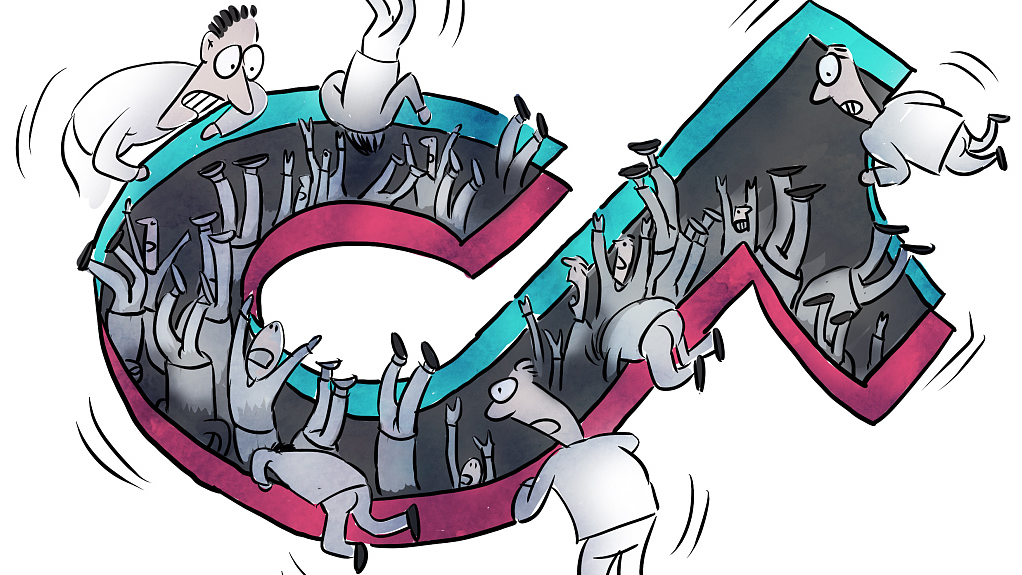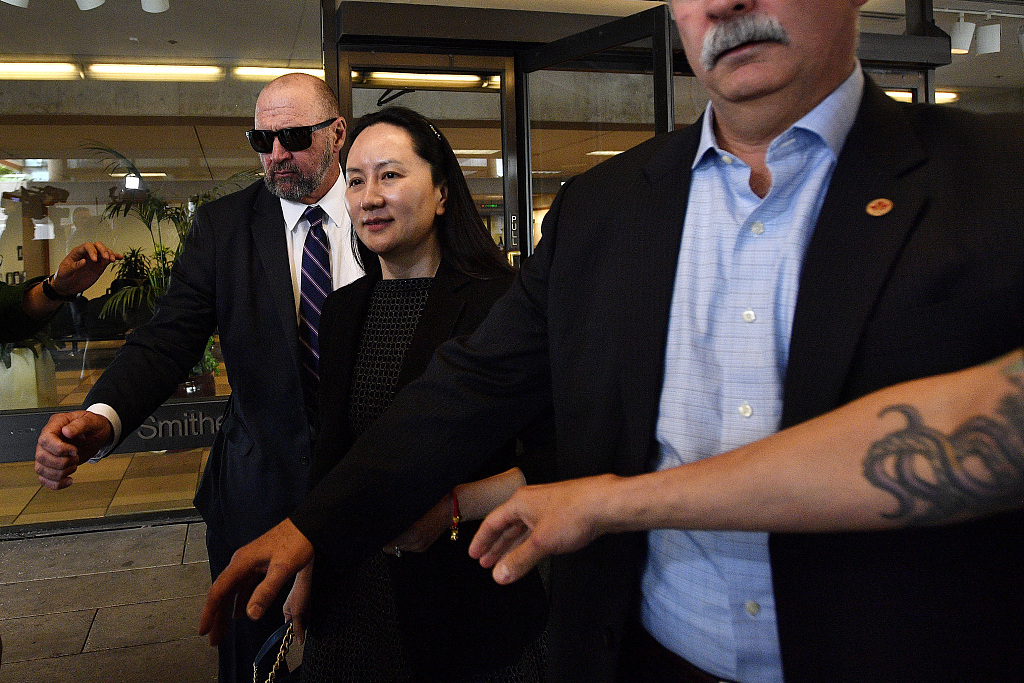
Editor's note: Tom Fowdy is a British political and international relations analyst and a graduate of Durham and Oxford universities. He writes on topics pertaining to China, the DPRK, Britain, and the United States. The article reflects the author's opinions, and not necessarily the views of CGTN.
The social media application, TikTok, came under an attack on Friday by a group of U.S. senators including Chuck Schumer, Marco Rubio and Tom Cotton.
The congressmen, all who are known for their belligerent stance against China, accused the application of pursuing censorship and surveillance on behalf of the Chinese government and thus a "threat to national security."
The application is owned by the Chinese company ByteDance, but nevertheless bases its operations outside the country. It has become extremely popular among young people in the United States.
Inevitably, the mainstream media took the words of these senators and presented their narrative in factual terms, ignoring the blatant opportunism and clear hysteria at play here.
The reality is: Anything which is popular and associated with China in the current climate is accused of having malign purposes, usually espionage, often without any evidence whatsoever.
TikTok is but the latest in a series of things which have been tarred by these accusations, with a mounting hostility to any popular technology enterprise emerging from China.
As a result, mainstream audiences must become more astutely aware of how American politicians weaponize claims like this for political gain, and stop taking the reports at face value whereby fact checking seems to go out of the window.
It is a long-established game of American politics to publicly undermine and discredit one's rivals by making heavily charged accusations against them. Although this is a feature of politics worldwide, in the United States there is specific element of such happening in a very inflammatory, heated and hysterical way.
U.S. culture is by the nature of its Protestant origins, vocal, evangelical and highly value-centric. This turns the mechanisms of politics into a theatrical-like display.
We see this manifest in several ways. On a domestic level, we see how there is a burning appetite by opponents to accuse Donald Trump of foreign collusion in order to delegitimize his presidency.
Most crucial to note is that this drama transcends the established facts, the president is repeatedly accused of being a puppet of Russian President Vladimir Putin. Thus, on a foreign policy level, we see the same behavior function by gearing itself towards the amplification of a "foreign threat" to discredit either a country or items associated with that country, accordingly.

Huawei CFO Meng Wanzhou leaves the Supreme Court following a hearing in Vancouver, British Columbia, Canada, May 8, 2019. Earlier, the U.S. accused Huawei of threatening national security. /VCG Photo
Huawei CFO Meng Wanzhou leaves the Supreme Court following a hearing in Vancouver, British Columbia, Canada, May 8, 2019. Earlier, the U.S. accused Huawei of threatening national security. /VCG Photo
This brings to today's China rhetoric. In Washington, everything linked with China is smeared and attacked on a base assumption as being a "threat to national security" and a tool of espionage, part of the wider "China threat" talk which is sweeping the Capitol.
This is never made by an appeal to facts, reason or evidence. If something associated with China has a presence or popularity within the United States, American politicians simply slap such accusations on it with a view of enhancing their own political standing, for being anti-China pays.
This has resulted in accusations against Huawei, Chinese students, researchers, manufactured subway cars, many other things and now of course, TikTok.
The accusations are not based on any truthful premise at all. The idea a popular video app among young people, which has a no-politics policy, could be a tool of the Chinese government is silly and opportunistic at best.
The company noted its servers and offices are based outside of China in practice, with them hosting an alternative app in the country called "Douyin."
Yet, the views of these very hawkish senators were nevertheless presented as simple fact by the media, including the BBC whom with a relentless focus against China of late, simply passed off their claims as "national security" concerns, and instead of opting for evidence, built it into its wider discourses on fears over Chinese technology.
So what are the lessons for mainstream readers on this note? First of all, one needs to stop assuming that the claims of these politicians are in any way true. People are happy to question these individuals on domestic issues, but nevertheless take their word as gospel when it involves a foreign adversary.
Instead, they need to focus more on the obvious political opportunism behind such claims and also identify how the mainstream media is also taking them at face value.
There is an overwhelming frame of mind in the West that if a claim is negative and associated with China, it must be true. Accusations leveled against TikTok demonstrate just how unrestrained, cynical and irrational these discourses really are, and also just how shoddy, biased and unfair the mainstream media is when dealing with these topics. We know U.S. politicians are often far less than honest. It's time audiences stopped taking the "China threat" narrative seriously.
(If you want to contribute and have specific expertise, please contact us at opinions@cgtn.com.)